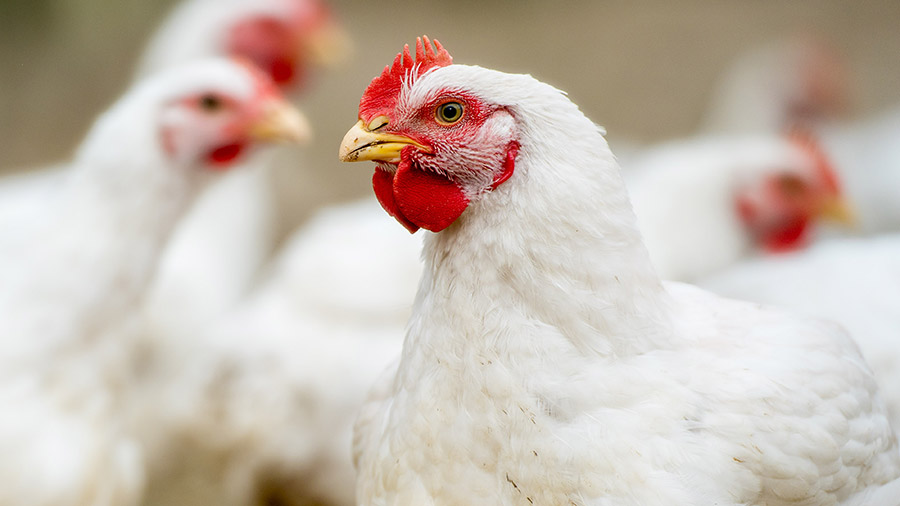Avian flu hits high-health units as housing order begins
 © AdobeStock/Snowboy
© AdobeStock/Snowboy Concerns over the spread of avian influenza are growing as case numbers soar and even units with the highest biosecurity succumb to the disease.
As Defra’s housing order came into force in England on Monday, 7 November (see panel), latest figures from the Animal and Plant Health Agency revealed that almost 100 cases have hit UK flocks since 1 October.
Among the total are units with the highest health and biosecurity regimes. In October birds at a vaccine production unit in Lancashire were culled after the virus managed to penetrate protection measures.
And this weekend, the Animal and Plant Health Agency (Apha) announced that a great-grandparent broiler breeder flock in Norfolk was among the mounting roll call of cases.
See also: Dairy producer numbers drop to new lows
Flocks like these operate the strictest measures, including “shower in, show out” protocols for anyone visiting or working on the sites.
The fact even they have gone down, demonstrates the virulence of the current H5N1 strain of the virus, sector leaders and vets have said.
Speaking at a recent webinar, Andy Paterson, head of Apha’s national emergency epidemiology group, explained the scale of the risk.
A single wild bird dropping could contain thousands of infective doses and wipe out an entire flock, Dr Paterson said.
A dose can be carried on any vector, including rodents, clothing, bedding, feed and equipment, he stressed.
British Poultry Council chief executive Richard Griffiths echoed the concern. “When high-health units succumb, it emphasises just what we are up against,” Mr Griffiths said.
“We must all raise our game and vigilance. Science shows that tight biosecurity is the best defence, so every aspect on the unit must be tackled. All risks, even those that appear small, must be dealt with.”
Overstretched
But, with risk levels raised and an already huge workload on vets and government officials, Mr Griffiths raised concerns over resources.
“Apha and Defra have done a fantastic job, but signs are emerging that operations are being stretched,” he said.
Officials are having to prioritise incidents and backlogs of killing birds and carcass removal from sites are being delayed.
The British Poultry Council is calling on the government to ensure vets and officials are given sufficient backing to tackle the disease early, Mr Griffiths said.
Housing order introduced
The legally binding housing order for flocks in England was introduced at 12.01am on Monday, 7 November. From that time, all flocks of captive birds must be housed and staff must follow stringent biosecurity measures.
- Cleanse and disinfect clothing, footwear, equipment and vehicles before and after contact with poultry and captive birds
- Where practical, use disposable protective clothing
- Reduce the movement of people, vehicles or equipment to minimise contamination from manure, slurry and other products
- Control vermin and keep out wild birds
- Keep records of mortality, movement of birds and poultry products, and any changes in production
- Thoroughly cleanse and disinfect housing continuously
- Keep fresh disinfectant at the recommended concentration at farm and housing entry and exit points
- Keep wild birds away from feed and water
Mental health support
The Royal Agricultural Benevolent Institution (Rabi) has issued a reminder to poultry producers that support services are available during this worrying time.
Rabi’s services manager, Helen Sisk, said that any farmer affected could access the charity’s free confidential helpline and arrange professional in-person mental health counselling.
Confidential, round-the-clock services to provide support are available by calling the 0800 188 4444 helpline.
